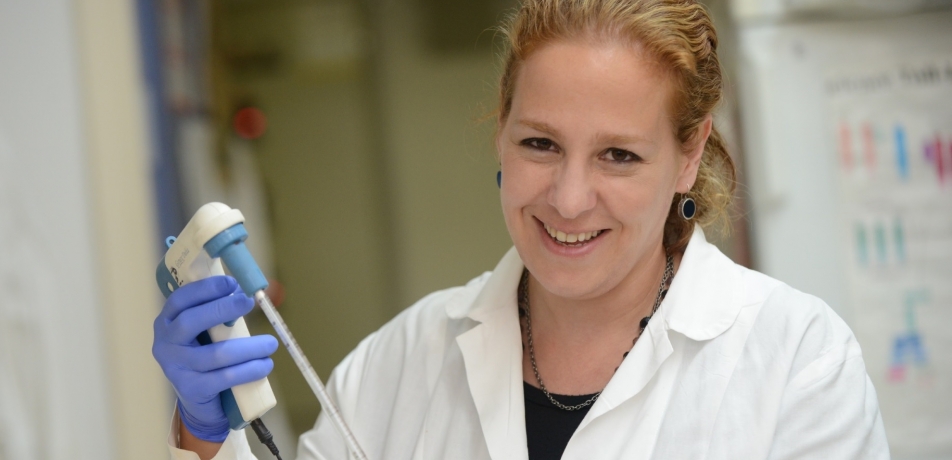Clues from cellular waste
Insight may have implications for lupus, cancer treatment
Briefs

Dr. Yifat Merbl
Just as a trash bin’s contents provide clues about the nature of a given household’s last meal, it appears that the best way to find out what goes on in our bodies may be to take a look at their cellular waste products.
This cellular “dumpster diving” is now possible thanks to a new method created by Dr. Yifat Merbl, of the Weizmann Institute’s Department of Immunology. As reported recently in the prestigious journal Nature Biotechnology, this method—called Mass Spectrometry Analysis of Proteolytic Peptides, or MAPP for short—is based on the fact that, after they do their work, some 70% of our cells’ proteins are broken down by degradation and recycling units called proteasomes.
Using the MAPP approach, Dr. Merbl is able to isolate the proteasomes from cells, and then pull them out together with the pieces of proteins, or peptides, preserved in the midst of the degradation process. This generates patient-specific signatures of protein breakdown in cells and tissues—something that can indicate what goes on in the case of disease.
Protein ‘profiles’ for autoimmunity and cancer
The team’s experiments focused on an autoimmune disorder called systemic lupus erythematosus (SLE). SLE is difficult to diagnose, has no cure, and no one knows what causes it. Using the MAPP system, however, Dr. Merbl and her team rummaged through the trash, and gained new insight into this disease on the molecular level.
Most proteomic techniques generate lists of all the proteins expressed in cells, but do not produce data about how or when these proteins are used. By focusing on degraded proteins, on the other hand, the scientists were able to identify which proteins were recently used and which may be damaged—something that sheds light on the major activities in the cell at a particular time.
“By looking at the contents of cellular trash cans, we were able to profile the disease state on the level of the cell’s protein turnover,” Dr. Merbl says. “This allowed us to uncover some clues as to what goes wrong in these cells to bring about the symptoms of the disease. For example, if too little of a protein that regulates cellular growth and replication is taken out to the trash, the result might be cancer. Over-degradation of a protein that suppresses inflammation may help trigger autoimmune disease.”
The team is now focused on harnessing MAPP technology for cancer research. “Some of the products that are broken down by the proteasome and found in the cellular trash make their away out again, where they take up positions on the cellular surface and can serve as targets for the immune system activity,” Dr. Merbl explains. “Therefore, by analyzing degradation products associated with tumor cells, we may be able to reveal cancer-specific degradation products that could serve as novel therapeutic targets for cancer immunotherapy or anti-cancer vaccines.”
Dr. Yifat Merbl is the incumbent of the Leonard and Carol Berall Career Development Chair.








